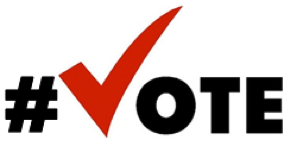
And that little element is, of course, social media technology.
In the past few years America has seen a surge of social media presence in every aspect of life — from shopping to transportation news to interpersonal connections — and now politics has been irrevocably added to the list of things to blog and tweet and tumble about.
An article in Politico on Tuesday revealed that the Alliance Defense Fund was live-tweeting the Supreme Court of the United States (SCOTUS) proceedings about Obamacare, despite the ban on electronics in the courtroom.
The group began tweeting up-to-the-minute updates to their followers under the username @AllianceDefense, but it didn’t last long. Eventually courtroom officials found out that the tweets were being sent by an attorney in the lawyer’s lounge, a side room reserved for courtroom overflow. This room was connected to an audio feed of the court room proceedings, but were told only pen and paper were allowed. And sure enough, around 11:30am, the misguided tweeters were ordered to stop as U.S. Marshalls arrived to enforce the “no electronics” rule.
Wow. #hardknocklife.
However this little stunt is not the only point at which the social media world melds with the political one. All of the presidential candidates, as well as nearly every senator, governor and political official and organization has a Twitter and Facebook account, and will frequently interact with their constituents through this forum.
These Internet cork boards are also often where people voice their praise (or distrust or disdain) for government officials or programs. Blog sites get countless comments and replies to their articles from people all over the country voicing their opinions.
And that is what social media is all about: making it easier for everyone to join in the conversation and broaden the understanding of an entire group of people.
Social media is also an excellent way for political campaigns to gain support for bills, get donations, raise awareness of important issues, or help new candidates get their name and message out there to a broader audience.
That is opposed to creating a TV commercial, which could potentially reach thousands, hoping your target audience is watching in the area you want to focus on at the time you want.
On the Internet, a Facebook status, tweet or blog post stays forever. So if your (hypothetical) target audience of families with more than two children in Buffalo, NY are not all on the computer the moment you post, but log-on on their smartphone sometime later and click on your page, your message will be right there, all day and all night.
The potential for exposure is seemingly endless.
This is especially essential when targeting the millennial generation, who were born, nursed, and reared in the bold age of technology. Twitter, Facebook, YouTube, and tumblr are like second nature, and you’d be hard pressed to find a millennial without an account with at least two, if not all and more, of those four major platforms.
And seeing how important the youth vote was in the last election, it seems that politicians should look a little less at the polls and look a little harder at their @ mentions, because therein may lie the real key to politics in this modern age.
So long hand-held signs, hello hashtags.
Rebecca DiFede is a contributing editor to Americans for Limited Government.






